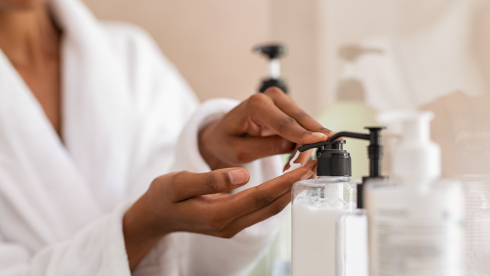Janay Rice is not your victim. She’s not your scapegoat to help you maintain your belief in a just world. Nor, is she your opportunity to feel better about your life choices. She’s a woman, like many others, who’s struggling to make her way through a violent and chaotic relationship. Her struggle just happens to be public.
It seems Rice’s decision to stay in her relationship has provoked more ire from the media and public than the vicious beating at the hands of her star athlete husband. Understandably, after viewing the horrific video, one would ask how and why, but somehow the whys seem to focus on the victim and not on the perpetrator. As exemplified by the social media campaign, #WhyIStayed, Rice’s decision is not as uncommon as the hashtag has been used over 120,000 times on Twitter by women and men describing why they stayed in abusive relationships. These personal testimonies run the gamut from traditional and emotional reasons to practical and incidental ones. Many of the respondents tweeted experiences fraught with nuanced complexities that affected their decision-making at that particular time in their life. As stated by Beverly Gooden, the creator of the social media movement and domestic violence survivor, the purpose of starting the hashtag was “not to justify remaining in the relationship but to illuminate why it is so difficult for women to leave.”
We must debunk the notion that women who leave abusive relationships are ’empowered’ while those who stay are considered victims. It is a testimony to the failure of our society that women are often blamed for the atrocities committed against them, rather than making strategic decisions to maximize their physical and mental health and safety of themselves and their children. While many of us would shake our heads in agreement with the aforementioned statement, we have yet to realize that it is not the obvious displays of victim-blaming that are the most harmful, but the daily insidious experiences that may silence a woman’s voice or limit her desire to make positive changes. As mental health workers, we often listen to horrific stories of human failures, we are trained to be aware of how subtle judgment or dismissing a person’s right to make their own decisions and/or to organize their own survival strategy can compound their current situation. Even in the field of mental health we struggle with understanding how to deal with women who choose to stay in violent situations; however, we do know that for a host of reasons, victims of domestic violence remain in the relationship. Some include: threats to their life or those they care for, fear of financial or legal consequences, including deportation as well as being shamed by their work colleagues, friends, or family. Also, we now understand that the most dangerous time for a domestic violence victim is while they are in the process of leaving as their level of risk increases at this pivotal moment. In fact, one study found that half of the homicides of female spouses and partners were committed by men after separating.
We have to deal with and talk more about the complexity of these situations and focus more attention on finding ways to support the actual victims. The fact is that while the media has provided several examples of horrific physical and psychological trauma of women and girls within the context of violence at the hands of their loved ones, we continue to blame the abused, failing to have the capacity to hold their assailants accountable, while at the same time criticizing the female victim for “her role” in her own battery. And we are not alone. In 17 out of 41 countries a quarter or more people think that it is justifiable for a man to beat his wife. Perhaps this sounds like an over exaggeration or an issue not applicable to us, however let us not forget the public reaction to the abuse Rihanna incurred by Chris Brown. Similar to Rice, many questioned Rihanna’s decisions and motives, with barely a peep about why/how Brown committed such a violent act in the first place. It is no wonder many victims feel isolated and confused about how to leave the situation.
For the sake of our communal health, we must endeavor to understand the cycle of domestic violence and the ways unhealthy, learned relationship dynamics within our community causes us to perpetuate this violence against one another. Most important, when the people we love make relationship choices, even ones that we consider detrimental to their well-being, we must find it within ourselves to provide safety and support void of judgment. For it is in the context of love and acceptance that we are able to find the internal strength to face our fears.












